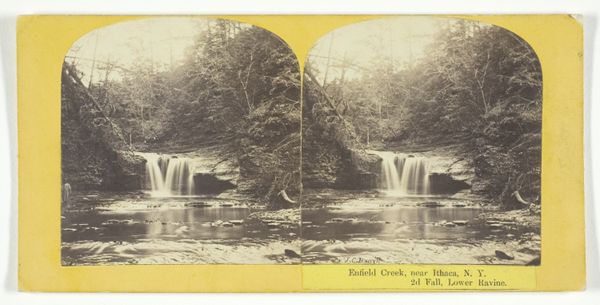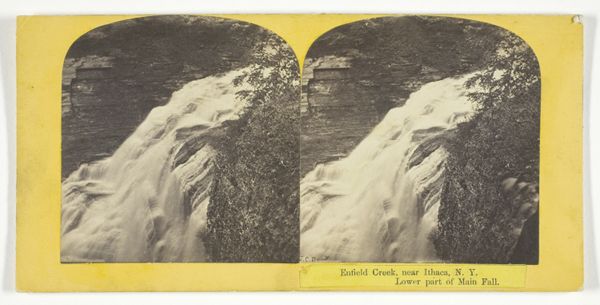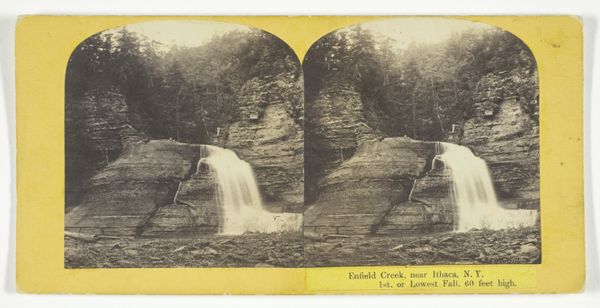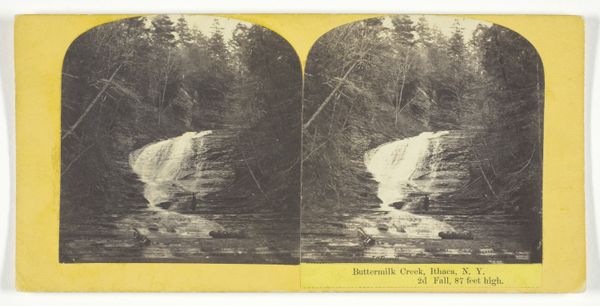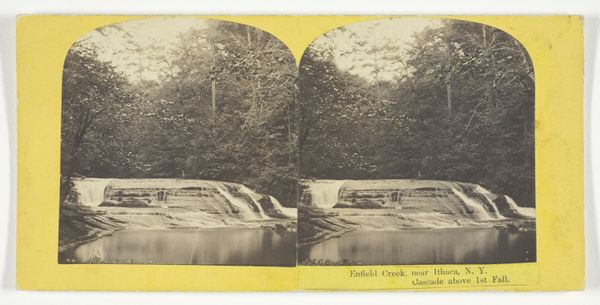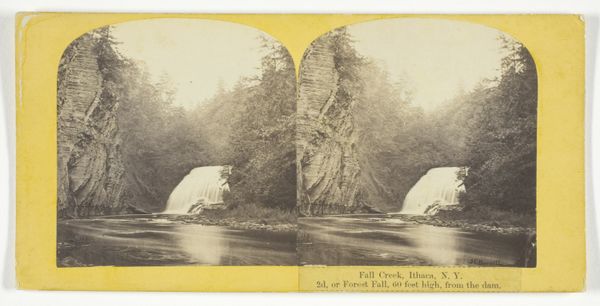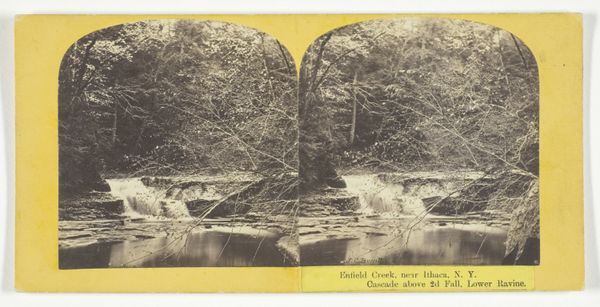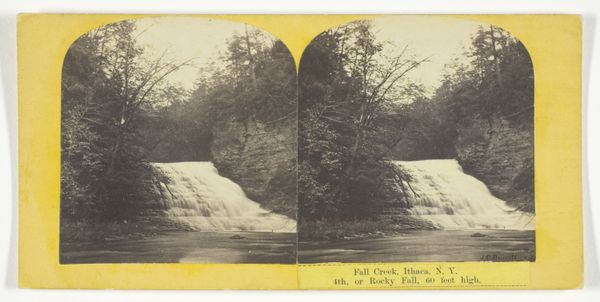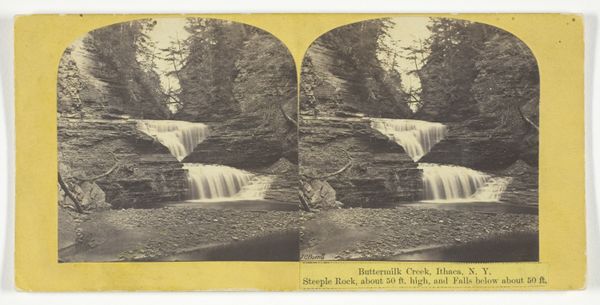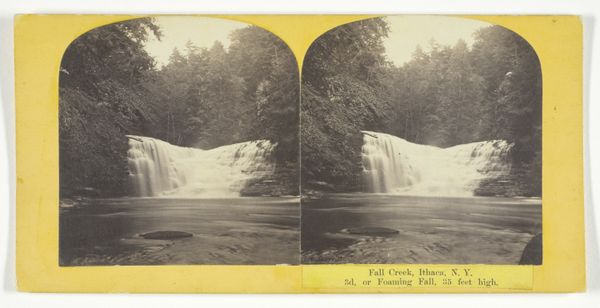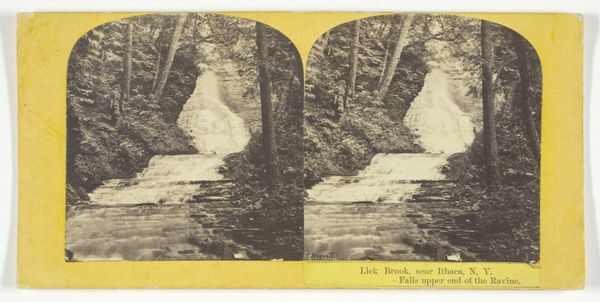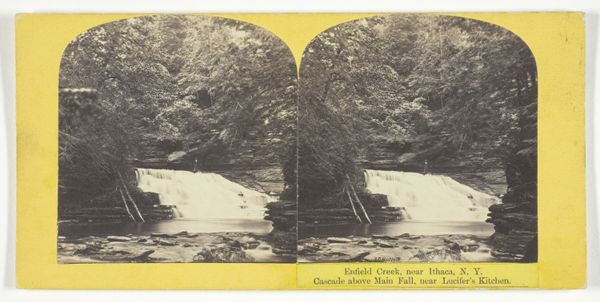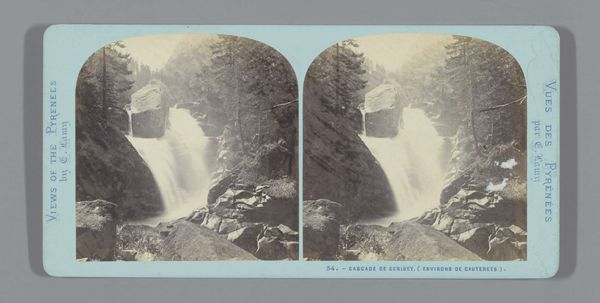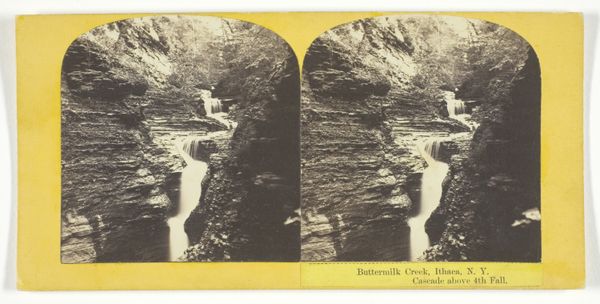
Enfield Creek, near Ithaca, N.Y. Lower part of Main Fall 1860 - 1865
0:00
0:00
print, photography
# print
#
landscape
#
photography
#
realism
Dimensions: 7.5 × 7.2 cm (each image); 8.4 × 17.1 cm (card)
Copyright: Public Domain
Editor: This is an intriguing stereograph, entitled "Enfield Creek, near Ithaca, N.Y. Lower part of Main Fall," dating from the 1860s, by J.C. Burritt. I'm immediately drawn to the lone figure standing near the base of the falls, dwarfed by the natural landscape. It gives the image a sense of scale and a bit of solitude. What jumps out at you when you look at this photograph? Curator: It's precisely that tension between the figure and the landscape that captures my attention. These types of images were extremely popular during the rise of photographic technology, which also saw increasing industrialization. They reveal a growing desire to document, but also to promote specific perspectives on nature. Editor: Could you elaborate on those perspectives? Curator: Certainly. Note how the individual, presumably a man, isn’t interacting with or changing nature. Instead, he becomes a contemplative part of the picturesque scene. Photography at this time was intertwined with tourism and national identity. The question arises, who had access to this technology, and how did that affect the image being shared? Editor: That makes sense. The ability to see these places would have been quite limited to many. Curator: Exactly. The image would likely be circulating amongst middle and upper class audiences to highlight the virtues of the "American" landscape and ideas about Manifest Destiny at the time. And this being a stereograph, that sense of "being there" is amplified even further. Were images such as this one encouraging expansion? Almost certainly, I would say. Editor: That’s fascinating to consider. I had only thought about its artistic merits at first, not about how social status would influence production or interpretation. I see that photography is far more complex than I realized. Curator: Indeed. Analyzing it through the lens of social and technological access unveils deeper narratives that challenge simplistic notions of landscape as merely "beautiful." Editor: Thank you. I'll be sure to consider these implications in my own work moving forward.
Comments
No comments
Be the first to comment and join the conversation on the ultimate creative platform.
